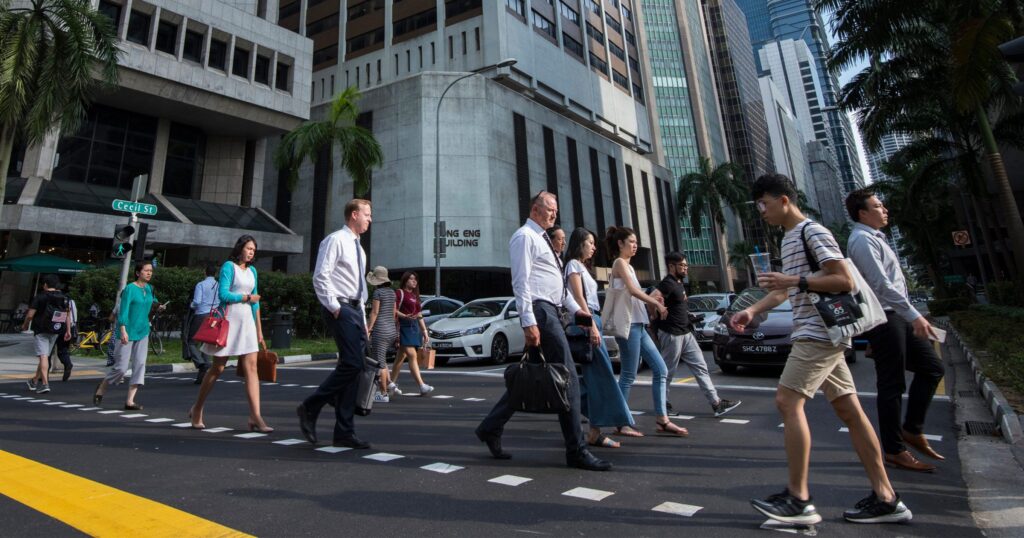
The overall turnover rate in Singapore is also among the highest in the region
Singapore’s involuntary turnover rate is the highest in Southeast Asia, according to global professional services firm Aon’s latest Salary Increase and Turnover Survey.
Standing at 6.6% this year, it reflects the share of employees who were let go by their employers due to reasons such as company restructuring, downsizing, performance issues, or redundancy. This figure marks an increase from 6% in 2024.
When including voluntary resignations, the overall turnover rate still remains among the highest in the region, standing at 19.3% just behind the Philippines’ 20%.
Which sectors saw the highest turnover in Singapore?
Across Singapore’s industries, the retail and hospitality sector recorded the highest involuntary turnover rate at 7.3%, followed by the technology sector at 6.8%.
Other sectors include manufacturing (5.1%), life sciences and medical devices (4.9%), financial services (2.8%), and consulting, business, and community services (1.3%).
The manufacturing sector also had the highest overall turnover rate at 26%. Rahul Chawla, Aon’s partner and Head of Talent Solutions in Southeast Asia, said that this could be due to older workers exiting the industry or that the sector is not appealing to workers in general.
Looking ahead, most companies are projecting a flat headcount in the second half of 2025. As companies increasingly leverage technology and artificial intelligence, they now tend to focus on optimising their existing workforce rather than pursuing aggressive headcount growth.
That said, the survey also found that sales and information technology roles remain among the hottest jobs in the market. The need for data protection also bolsters demand for tech professionals, especially those specialising in cyber security.
Singapore also saw the slowest wage growth in 2025
At the same time, wages in Singapore grew by 4.3% this year, the lowest in Southeast Asia. The average percentage growth across the region was 5.4, with Vietnam having the highest percentage growth at 7.7.
For 2026, companies in Singapore are budgeting an average salary increase of 4.3%, mirroring this year’s actual growth, but projections vary across industries.
Life sciences and medical devices firms are expected to offer the largest pay hikes at 4.6%. According to Chawla, life sciences is traditionally a “good paymaster,” and such companies also appeal to talents who are driven by purpose, like those who want to contribute to improving lives.
Conversely, the energy sector is budgeting the smallest wage raise at 3.5%, reflecting a more cautious outlook.
Overall, Chawla highlighted that inflation is a big driver for salary increases. In developing economies, inflation rates are typically higher, which often translates to a larger pay bump.
In an interview with the South China Morning Post, Kim Seonghoon, Associate Profressor of Economics at the Singapore Management University, said the average 4.3% wage growth was impressive considering how baseline wages were in Singapore, compared to other countries in the region.
Kim emphasised: “Although the percentage may appear slightly lower than neighbouring countries, the actual dollar increases are quite meaningful given Singapore’s substantially higher GDP per capita base and lower inflation environment. This combination actually demonstrates robust economic performance.”
- Read other articles we’ve written on job trends here.
Featured Image Credit: Shadow_of_light/ depositphotos
Last modified: October 9, 2025







